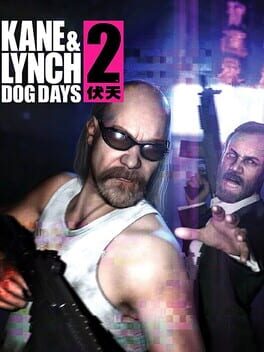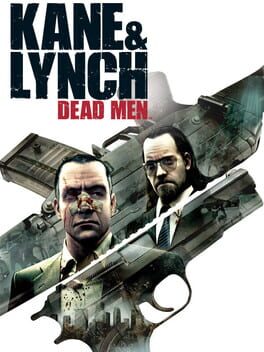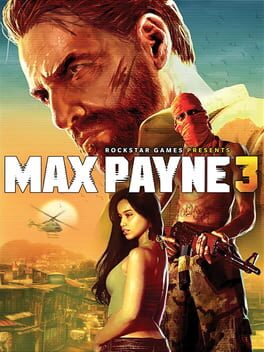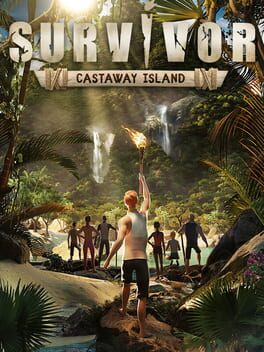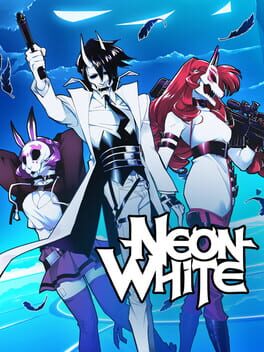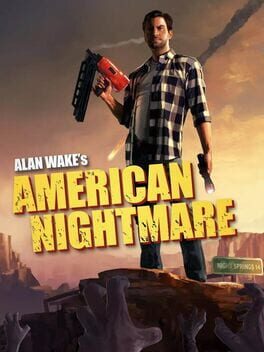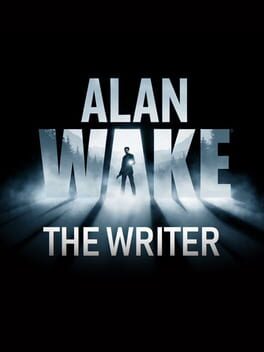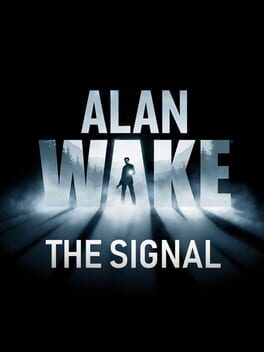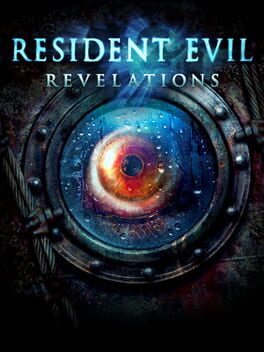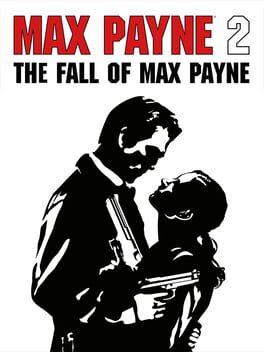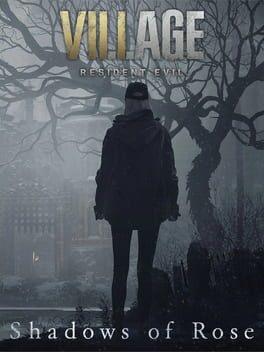kidmillions
BACKER
What the fuck was that? What the FUCK was THAT? You FUCKING tricked me, Lynch! You ruined fucking EVERYTHING. I just needed credit for my final and now I'm RIDDLED with bullets. "Hey nephew, come to Shanghai, you can capture a day in the life of your Crazy Uncle Lynch for your little student film" fuck you. I'm running around with this cheap-ass camera getting your fucking BLOOD all over everything. It's on my lens, it's in my clothes, it's up my FUCKING nose. Don't FUCKING get me started on this "Kane" guy. I'm standing out of cover, sacrificing EVERYTHING for a good shot, and you hide like a little BITCH. Now everybody in China plus that racist Guy Ritchie guy wants me dead. I'll never graduate now. FUCK YOU LYNCH.
2012
Played this as I follow along with Blake Hester and Jacob Geller's wonderful podcast Something Rotten.
Third crack at the Max Payne character, and along with it another fresh interpretation. This time he's a quip-y old dumb alcoholic on a quest to be the most Rockstar Games Guy in Brazil. I for one like the setting change because I don't think there were any Italians left alive in NYC after Max Payne 2. In a flashback, Max discovers that Italians also live in Jersey, and gets to work.
Max runs through expensive and unarguably brilliant level design, and engages in some of the most elegant and weighty gunplay, in search of...what exactly? This game wants to step on thorny issues of class, violence, race, etc. but doesn't want to push the gamer to ask the hard questions or to implicate themselves. All we can do here is bear witness to suffering. A lot of it. A very 2012 brand of political cowardice.
On the other hand, the game represents Max's alcoholism and road to sobriety in stark terms and with real care and purpose, to the point where the game uses visual effects to induce an actual hangover.
Maybe this is the distinction between mere depiction vs. something more meaningful. It's very OK for piece of art to have nothing important to say (I'm about to move on to Kane and Lynch, after all), but if it's trying to convince you that it does, and remains completely incurious about dipping more than a toe into the bloody waters, it kind of pisses me off.
Third crack at the Max Payne character, and along with it another fresh interpretation. This time he's a quip-y old dumb alcoholic on a quest to be the most Rockstar Games Guy in Brazil. I for one like the setting change because I don't think there were any Italians left alive in NYC after Max Payne 2. In a flashback, Max discovers that Italians also live in Jersey, and gets to work.
Max runs through expensive and unarguably brilliant level design, and engages in some of the most elegant and weighty gunplay, in search of...what exactly? This game wants to step on thorny issues of class, violence, race, etc. but doesn't want to push the gamer to ask the hard questions or to implicate themselves. All we can do here is bear witness to suffering. A lot of it. A very 2012 brand of political cowardice.
On the other hand, the game represents Max's alcoholism and road to sobriety in stark terms and with real care and purpose, to the point where the game uses visual effects to induce an actual hangover.
Maybe this is the distinction between mere depiction vs. something more meaningful. It's very OK for piece of art to have nothing important to say (I'm about to move on to Kane and Lynch, after all), but if it's trying to convince you that it does, and remains completely incurious about dipping more than a toe into the bloody waters, it kind of pisses me off.
2023
This is a complicated review to write at the ass-end of a binge of every Remedy game I could lay my hands on. Alan Wake II would have been better as an introduction to the Remedy-verse rather than a finale (ewwww, 'Remedy Connected Universe'. Makes me gag just to type it). You go through a fun-house enough times and you know what to expect, even if it is shinier and newer each time the carnival comes to town.
Quantum Break is when this studio showed their hand and admitted that they would probably rather make TV shows than video games. They likely took a few lessons from that experience and got less literal about it in subsequent work, but Control and Alan Wake II still adopt most from that medium and it's clear that the rhythms and paces of the last decade of 'Peak TV' are what inspire and motivate Sam Lake and Co. the most.
I guess that's what I find kind of tasty about the Twin Peaks and True Detective influences: This game takes a lot from those worlds in terms of setting, style, and tropes. But where those shows, especially The Return, defiantly ravaged audience expectations of what TV could/should deliver, Wake instead wallows in the worst tendencies of a Netflix sci-fi show: meta-textual gobbledegook, cut-to-commercial pacing without the commercials, 'world building' as a means to keep the show going on and on, into syndication, forever and ever. And of course, the worst: scenes and set-pieces seemingly lab-grown as chum for the social media waters. This is probably best exemplified by the meme-able musical theater number that launched a thousand Polygon articles.
That's not to say that it's poorly executed, quite the opposite; this could be in the running for the best art direction ever in video gaming. So when faced with the choice of playing more Wake vs. watching one of the second-rate seasons of True Detective it mostly resembles, I'd probably still pick the game! The FMV-fronted effects they do here and in Control never get old, and I think this is one of the few games whose fidelity and beauty made me feel like I'm not a complete piece of shit for buying an Xbox Series X. Survival horror gameplay was also a killer call for this setting, though it was bold to basically copy/paste what Capcom has been doing with RE of late.
I think Remedy has the talent and capabilities to make the bat-shit, weird, audience and shareholder-unfriendly AAA game of my dreams, but their ongoing success, and the fact that, well, the AAA industry exists as it does, means that such a game can only ever exist in my Mind Place.
Quantum Break is when this studio showed their hand and admitted that they would probably rather make TV shows than video games. They likely took a few lessons from that experience and got less literal about it in subsequent work, but Control and Alan Wake II still adopt most from that medium and it's clear that the rhythms and paces of the last decade of 'Peak TV' are what inspire and motivate Sam Lake and Co. the most.
I guess that's what I find kind of tasty about the Twin Peaks and True Detective influences: This game takes a lot from those worlds in terms of setting, style, and tropes. But where those shows, especially The Return, defiantly ravaged audience expectations of what TV could/should deliver, Wake instead wallows in the worst tendencies of a Netflix sci-fi show: meta-textual gobbledegook, cut-to-commercial pacing without the commercials, 'world building' as a means to keep the show going on and on, into syndication, forever and ever. And of course, the worst: scenes and set-pieces seemingly lab-grown as chum for the social media waters. This is probably best exemplified by the meme-able musical theater number that launched a thousand Polygon articles.
That's not to say that it's poorly executed, quite the opposite; this could be in the running for the best art direction ever in video gaming. So when faced with the choice of playing more Wake vs. watching one of the second-rate seasons of True Detective it mostly resembles, I'd probably still pick the game! The FMV-fronted effects they do here and in Control never get old, and I think this is one of the few games whose fidelity and beauty made me feel like I'm not a complete piece of shit for buying an Xbox Series X. Survival horror gameplay was also a killer call for this setting, though it was bold to basically copy/paste what Capcom has been doing with RE of late.
I think Remedy has the talent and capabilities to make the bat-shit, weird, audience and shareholder-unfriendly AAA game of my dreams, but their ongoing success, and the fact that, well, the AAA industry exists as it does, means that such a game can only ever exist in my Mind Place.
2022
Did not follow Bazzleby's advice, and paid the price for it.
2024
On a recent Vegas trip, after a few rough losses at craps, I cashed out my remaining chips, sauntered to my hotel room, and booted up Balatro on the 'ol Steam Deck.
Did Balatro save me from losing more money, or prevent me from making it all back? The degenerate's mind obsesses over what could've been if he had walked away from the table earlier, if he had added another leg to his parlay. I don't consider myself an addict, but I imagine that at the extreme end of this, the wouldacouldashoulda of it all is just a coping mechanism to deal with the complete lack of control over meaningless numbers (odds, payouts, bankrolls, jackpots, ahem, antes, 'round scores' ) flying right past you, in and out of your addled brain as fast as a blackjack dealer can pull your cards and your chips off the table. Number go up. Number go down.
Balatro is a game about gambling as much as any other video game that relies on risk and reward, but the poker and casino aesthetics, to my degenerate ass, were an 'emperor wears no clothes' indictment of card-based roguelikes, a mask-off reveal of these games' true nature, to the point where I might retire from them completely.
There's nothing gamers hate more than to be shamed, but if somebody I knew was spending countless hours playing games like this, whether on a mobile app or on a casino floor, I would try to get them the fuck outside. The same concern for addicts' well-being should extend to grown men locked up in hotel rooms playing a Steam Deck. Time is also a form of currency, and you can never win it back at the poker table.
Did Balatro save me from losing more money, or prevent me from making it all back? The degenerate's mind obsesses over what could've been if he had walked away from the table earlier, if he had added another leg to his parlay. I don't consider myself an addict, but I imagine that at the extreme end of this, the wouldacouldashoulda of it all is just a coping mechanism to deal with the complete lack of control over meaningless numbers (odds, payouts, bankrolls, jackpots, ahem, antes, 'round scores' ) flying right past you, in and out of your addled brain as fast as a blackjack dealer can pull your cards and your chips off the table. Number go up. Number go down.
Balatro is a game about gambling as much as any other video game that relies on risk and reward, but the poker and casino aesthetics, to my degenerate ass, were an 'emperor wears no clothes' indictment of card-based roguelikes, a mask-off reveal of these games' true nature, to the point where I might retire from them completely.
There's nothing gamers hate more than to be shamed, but if somebody I knew was spending countless hours playing games like this, whether on a mobile app or on a casino floor, I would try to get them the fuck outside. The same concern for addicts' well-being should extend to grown men locked up in hotel rooms playing a Steam Deck. Time is also a form of currency, and you can never win it back at the poker table.
Subs out a Cascadian shit filter for a Sonoran piss filter, adds the slightest bit of enemy and weapon variety, and bows out before the player starts to wonder why Alan Wake conjures damsels in distress in every page of his shitty Night Springs spec script. AKA not a bad game.
Also, a note about Mr. Scratch. It struck me as funny that Sam Lake and Co. were so mind-melded with Twin Peaks to correctly anticipate Mr. C six years before The Return, and at the same created a character not even half as terrifying or thematically poignant as Lynch's version. It struck me as funny, Harry. Do you understand me, Harry? It struck me as funny.
Also, a note about Mr. Scratch. It struck me as funny that Sam Lake and Co. were so mind-melded with Twin Peaks to correctly anticipate Mr. C six years before The Return, and at the same created a character not even half as terrifying or thematically poignant as Lynch's version. It struck me as funny, Harry. Do you understand me, Harry? It struck me as funny.
"Revelations" is such a apt title for this one. It betrays what the devs at Capcom thought was cool and fun about Resident Evil at the time: watching the stinky onion of a conspiracy peel off layer by layer. No puzzles, no camp, no fun. Whoever told me this was an actual throwback lied. Scooby-Doo ass game.
"In this hall of mirrors/Built by liars, I am a pale reflection of myself"
Sam Lake said in an interview that he took screenwriting classes between Max Payne games, and it shows: the fan-fiction scuzz of the first affair giving way to, well, the kind of stuff you probably learn about in genre screenwriting classes (non-linear plots, unreliable narration, dramatic irony, etc etc).
The weightiness and variety of combat is a huge step up. It's kind of mindblowing how much more 'modern' this game feels than its 2001 predecessor: Max Payne with a bigger budget and more confident and consistent design.
This one also firmly cements what one might call Remedycore. Early on, Max goes to meet a character who lives in an abandoned funhouse based on a TV show called 'Address Unknown', a lurid and fantastical spin on Max's own story. 'Max Payne' literally steps through the tale of 'John Mirra', and we get a preview of what Remedy has tried to recreate in every one of their games since: meta-text that refracts the narrative, a 'linear sequence of scares' (to use Max's term) that reveals not just your lack of free will as a player (Remedy games are anything but 'open'), but the inability of the player-character to overcome a fate laid out for them by some higher force (a best-selling horror writer, or an interdimensional board of directors, perhaps). Every Remedy protoagonist is, in the end, just a trope. Tropes do as tropes are.
Maybe I'm just making an excuse, and in truth the writers are Remedy are making hacky material and disguising it as metatextual innovation. Or maybe simply looking into the funhouse mirror, and not thinking too much, is enough to have a hell of a time.
Or, just maybe, diving and shooting mafia types in slow motion is really fun.
Sam Lake said in an interview that he took screenwriting classes between Max Payne games, and it shows: the fan-fiction scuzz of the first affair giving way to, well, the kind of stuff you probably learn about in genre screenwriting classes (non-linear plots, unreliable narration, dramatic irony, etc etc).
The weightiness and variety of combat is a huge step up. It's kind of mindblowing how much more 'modern' this game feels than its 2001 predecessor: Max Payne with a bigger budget and more confident and consistent design.
This one also firmly cements what one might call Remedycore. Early on, Max goes to meet a character who lives in an abandoned funhouse based on a TV show called 'Address Unknown', a lurid and fantastical spin on Max's own story. 'Max Payne' literally steps through the tale of 'John Mirra', and we get a preview of what Remedy has tried to recreate in every one of their games since: meta-text that refracts the narrative, a 'linear sequence of scares' (to use Max's term) that reveals not just your lack of free will as a player (Remedy games are anything but 'open'), but the inability of the player-character to overcome a fate laid out for them by some higher force (a best-selling horror writer, or an interdimensional board of directors, perhaps). Every Remedy protoagonist is, in the end, just a trope. Tropes do as tropes are.
Maybe I'm just making an excuse, and in truth the writers are Remedy are making hacky material and disguising it as metatextual innovation. Or maybe simply looking into the funhouse mirror, and not thinking too much, is enough to have a hell of a time.
Or, just maybe, diving and shooting mafia types in slow motion is really fun.
2023
The alien characters in this game must've made it too; playing it feels like peering into a spherical artifact from worlds beyond, an impenetrable haze taking familar form if you stare at it enough. I don't think I've ever been more in awe of a game's puzzle design, which, ideally, makes dumb gamers feel smart by elegantly introducing complexity and avoiding blatant hand-holding. How did they make sure idiots like me don't get soft-locked inside one of these orbs?
Resident Evil has always had this problem where, after a few games with the same protagonists and antagonists, the conspiratorial lore and glut of proper nouns overwhelm any sense of good narrative. This DLC makes a good argument for closing the door on the Winter saga. It all has the feeling of watching deleted scenes on DVD with a new, worse actor spliced into the lead role. This maudlin family drama cannot continue! We need a return to the camp and hard resets of RE:4 and RE:7, stat.
That being said, I've never loved to hate a RE level more than the House Beneviento basement. Smart idea to do an encore setpiece down there.
That being said, I've never loved to hate a RE level more than the House Beneviento basement. Smart idea to do an encore setpiece down there.
